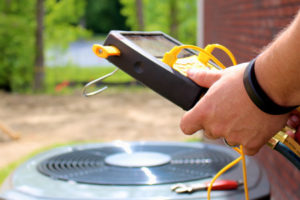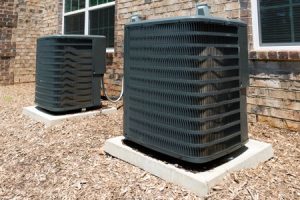Why You Should Leave Air Conditioning Maintenance To The Professionals?
If you live in a place where summer temperature levels rise to skyrocketing highs, you depend on your air conditioning unit for keeping you cool. Making certain that your air conditioning systems are in a great working condition not only assists to keep you cool but is crucial to your household’s safety. Freon ™ is a refrigerant that includes chlorofluorocarbons that are commonly utilized in cooling units in houses and cars too. When you are all set to have your coolant inspected, it is best to call your local air conditioning repair service. Nevertheless, you can examine your coolant levels and the condition of your A/C system( s) yourself as long as you are well informed on the threats and safety measures of working with Freon ™. In 2006, 33,500 injuries were reported by emergency clinics across the country related to Air Conditioning units, heat pumps, humidifiers, and air purifiers. It is probably wise to leave air conditioning repair to the professionals. To prevent ending from being a fact, you need to take safety precautions when handling any appliances.
Best Not To Do it Yourself
 In a restricted space, an abrupt refrigerant release can result in the displacement of air and cause asphyxiation. Even in lower concentrations, a refrigerants’ sudden release can trigger skin frostbite, loss of sight, and damage. Calling an Air Conditioning Repair Service is the best choice to avoid any above-mentioned damage to your life and skin.
In a restricted space, an abrupt refrigerant release can result in the displacement of air and cause asphyxiation. Even in lower concentrations, a refrigerants’ sudden release can trigger skin frostbite, loss of sight, and damage. Calling an Air Conditioning Repair Service is the best choice to avoid any above-mentioned damage to your life and skin.
- Do not check A/C in Compressed Air: The refrigerant HFC-134a is not combustible at typical ambient temperatures and air pressure. Nevertheless, tests have revealed it to be flammable at certain pressures and temperatures when mixed with air under pressure in a sealed environment. Service devices or vehicle A/C systems must not be pressure checked or leak evaluated with compressed air.
- Learn to deal with PAG (Polyalkylene Glycol) Lubricants: Polyalkylene Glycol oil or PAG is the main lube used for automobile air conditioners. PAG lube can irritate the skin so be sure to use protective, impenetrable gloves when using it to avoid contact. Mineral oil ought to be utilized to coat o-rings and seals prior to installation, which will likewise decrease contact with skin and minimizes the potential for fitting deterioration.
- Follow all the security treatments in the Air Conditioner manufacturer’s guide: Be sure to educate yourself if you do decide to deal with it on your own. Different electrical appliances require various handling. You can’t handle your Air Conditioning the very same way you deal with certain other domestic home appliances. Always keep the maker handbook safe in the time of usage throughout fixing your Air Conditioning. When you decide to work on your home A/C, follow all the standards in your Air Conditioner manual without fail. Otherwise, in addition to putting your life at danger, you may run the risk of voiding your producer’s guarantee.
Know modifications in your A/C unit
Be aware of changes in your A/C such as wires standing out of the Air Conditioning unit, dripping refrigerant or if you are hearing uncommon noises in the system. All these could be an indication of trouble. If you have actually spotted any of these issues, instantly call the nearby Air Conditioning Repair Service to prevent additional damage to your appliance as well as secure your household. Don’t take possibilities with your household’s safety.
Here are a Couple of Guidelines to Follow while Dealing with Freon in your Air Conditioner

- Always wear safety goggles and gloves while dealing with Freon or maintenance a refrigeration system.
- Wear the appropriate respiratory protection mask while dealing with Freon. Check the MSDS for the appropriate level of protection needed.
- Proper ventilation or breathing protection is required for any deal with devices in a confined location where a leak is believed.
- Always ventilate or check the atmosphere of an enclosed location before beginning work. Many refrigerants which may be undetectable by human senses are much heavier than air and will change the oxygen in a confined location triggering loss of consciousness.
- Inhaling refrigerants can trigger abrupt death. Deliberate inhalation of refrigerants to produce intoxication can trigger the heart to stop operating properly and might be fatal.
- Refrigerant cylinders need to never be filled over 80% of their capability (liquid growth might cause the cylinder to burst).
- Check the I.C.C. cylinder stamp to guarantee the cylinder is safe. Always examine the refrigerant number before crediting avoid blending refrigerants.
- Always check for the proper operating pressure of the refrigerant utilized. Usage assesses to monitor the system pressure.
- If refrigerant reaches the eyes, right away wash with mineral oil as this soaks up the refrigerant. Then wash your eyes with a prepared boric acid solution.
- Do not allow temperature levels where refrigerant cylinders are kept to reach 125 degrees F. Temperatures can quickly surpass 125 degrees F in your car during heat.
- Inspect refrigerant cylinders regularly. Do not use the cylinders if they reveal indications of rust, distortion, denting, or rust. Shop cylinders protected and upright in an area where they will not be overturned or damaged.
Ensure to adhere to the security manuals that include Air Conditioners. Before dealing with any Freon refrigerant, follow all the security requirements. Direct exposure to big concentrations of fluorocarbon refrigerants can be fatal. In high concentrations, these vapors have an anesthetic impact, triggering stumbling, shortness of breath, missing or irregular pulse, tremors, convulsions, and even death. So, make sure and guarantee your security.




